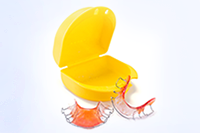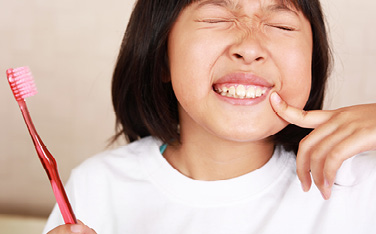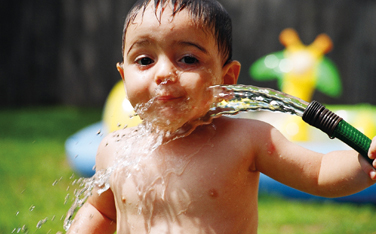Before you jump in, take out removable dental appliances like retainers. Store them safely in a container far away from the water. Retainers can fall out in the water and get damaged or lost. The chlorinated water in pools can also damage the plastic.
If you wear full or partial dentures, you don’t have to take them out when you go swimming. However, water can loosen the suction that keeps your dentures attached, so use a denture adhesive to secure their fit.












